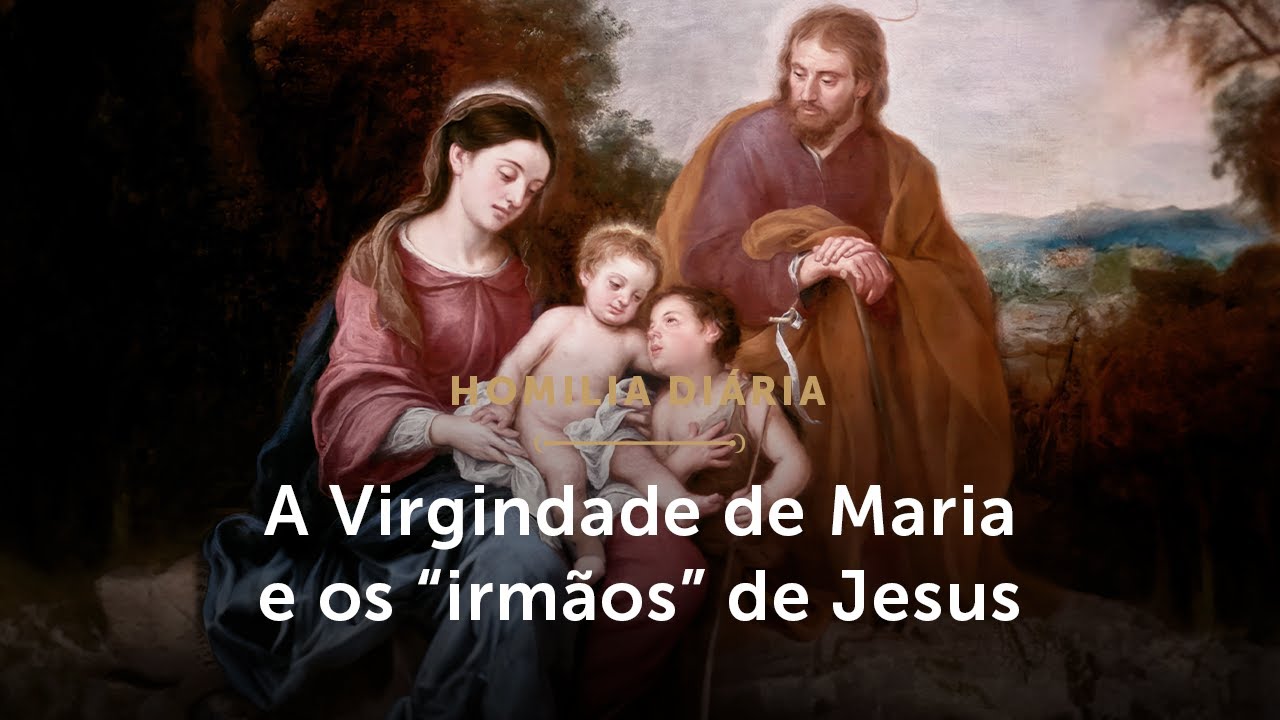Ask Katolisitas: Bunda Maria Tetap Perawan
Summary
TLDRThe transcript explores the dogma of the Virgin Mary, emphasizing her perpetual virginity as supported by the Gospel of Matthew. It discusses how Mary was a virgin before, during, and after the birth of Jesus, and references Matthew 1:24-25 to highlight that Joseph and Mary had no marital relations after Jesus' birth. The discussion incorporates interpretations of biblical language, such as 'until' in Greek, suggesting that it does not imply a change in status. The teaching of Mary's perpetual virginity is upheld by early Church Fathers and theological documents, reinforcing her unique role in Christianity.
Takeaways
- 😀 The dogma of the Virgin Mary teaches that she was a perpetual virgin before, during, and after the birth of Jesus.
- 📖 The Gospel of Matthew 1:24-25 supports the belief that Mary remained a virgin throughout her life.
- 🕊️ The church emphasizes that Mary was a virgin at the time of conception, during childbirth, and remained so afterward.
- 🔍 The Greek word 'heos' used in the scriptures does not necessarily imply a change after the event it refers to.
- 🤔 The example of 2 Samuel 6:23 illustrates that the phrase 'until' can imply no change occurred afterward.
- 💡 Matthew 28:20 emphasizes the eternal presence of Jesus with His followers, reinforcing Mary's role.
- 👩❤️👨 The relationship between Mary and Joseph is clarified as one without marital relations, even after Jesus' birth.
- 📜 Early church documents, like the Protoevangelium, assert Mary's perpetual virginity dating back to around 150 AD.
- 👨⚖️ Church Fathers such as St. Jerome upheld the doctrine of Mary's virginity until the end of her life.
- 🙏 The teachings about Mary emphasize her unique role and sanctity in the Christian faith.
Q & A
What does the dogma of the Virgin Mary state regarding her perpetual virginity?
-The dogma teaches that Mary was a virgin before, during, and after the birth of Jesus Christ, maintaining her virginity throughout her life.
Which biblical verses are cited to support the belief in Mary's perpetual virginity?
-The belief is supported primarily by Matthew 1:24-25, which describes Joseph taking Mary as his wife and emphasizes that she was a virgin when she gave birth to Jesus.
What does the term 'heos' in Greek imply regarding Mary's virginity?
-The term 'heos' can mean 'until' but does not necessarily indicate a change or event following that point, suggesting that Mary's virginity could remain intact even after the birth of Jesus.
How do interpretations of 2 Samuel 6:23 relate to the discussion of Mary's virginity?
-In 2 Samuel 6:23, it states that Michal, the daughter of Saul, had no children until her death. This does not imply she had children afterward, illustrating that 'until' does not always indicate a subsequent change.
What role did early Church Fathers play in affirming Mary's perpetual virginity?
-Early Church Fathers, such as those referenced in the protoevangelium and St. Jerome, firmly upheld the belief that Mary remained a virgin for her entire life.
What is the significance of Matthew 28:20 in this context?
-Matthew 28:20 emphasizes the promise of Jesus' perpetual presence with his followers, similar to how Mary's virginity is viewed as a continuous state without change.
How does the Church interpret the relationship between Joseph and Mary?
-The Church teaches that Joseph and Mary had no marital relations, affirming that Mary was never in a typical husband-wife relationship with Joseph.
What is the historical significance of the protoevangelium regarding Mary?
-The protoevangelium, dating back to around 150 AD, is one of the earliest documents that support the belief in Mary's perpetual virginity.
What does the transcript suggest about the nature of Mary's motherhood?
-The transcript suggests that Mary’s motherhood of Jesus does not alter her status as a virgin, as her unique role is seen as one that transcends conventional definitions of motherhood.
How do contemporary interpretations of these biblical passages differ from historical views?
-Contemporary interpretations may vary, with some modern theologians questioning traditional doctrines, while historical views consistently upheld Mary's perpetual virginity as a significant aspect of her identity and role in Christianity.
Outlines

Этот раздел доступен только подписчикам платных тарифов. Пожалуйста, перейдите на платный тариф для доступа.
Перейти на платный тарифMindmap

Этот раздел доступен только подписчикам платных тарифов. Пожалуйста, перейдите на платный тариф для доступа.
Перейти на платный тарифKeywords

Этот раздел доступен только подписчикам платных тарифов. Пожалуйста, перейдите на платный тариф для доступа.
Перейти на платный тарифHighlights

Этот раздел доступен только подписчикам платных тарифов. Пожалуйста, перейдите на платный тариф для доступа.
Перейти на платный тарифTranscripts

Этот раздел доступен только подписчикам платных тарифов. Пожалуйста, перейдите на платный тариф для доступа.
Перейти на платный тарифПосмотреть больше похожих видео

The 4 Marian Dogmas of the Catholic Church

Feast of the Nativity of the Blessed Virgin Mary, Matthew 1:1-16, 18-23

Mary, the Ark of the New Covenant

A História da Virgem Maria - Parte 1 | Evidências NT

Homilia Diária | Os “irmãos” de Jesus e a Virgindade de Maria (Sexta-feira da 17ª Sem. do T. Comum)

Mary, the Blessed Virgin HD
5.0 / 5 (0 votes)
